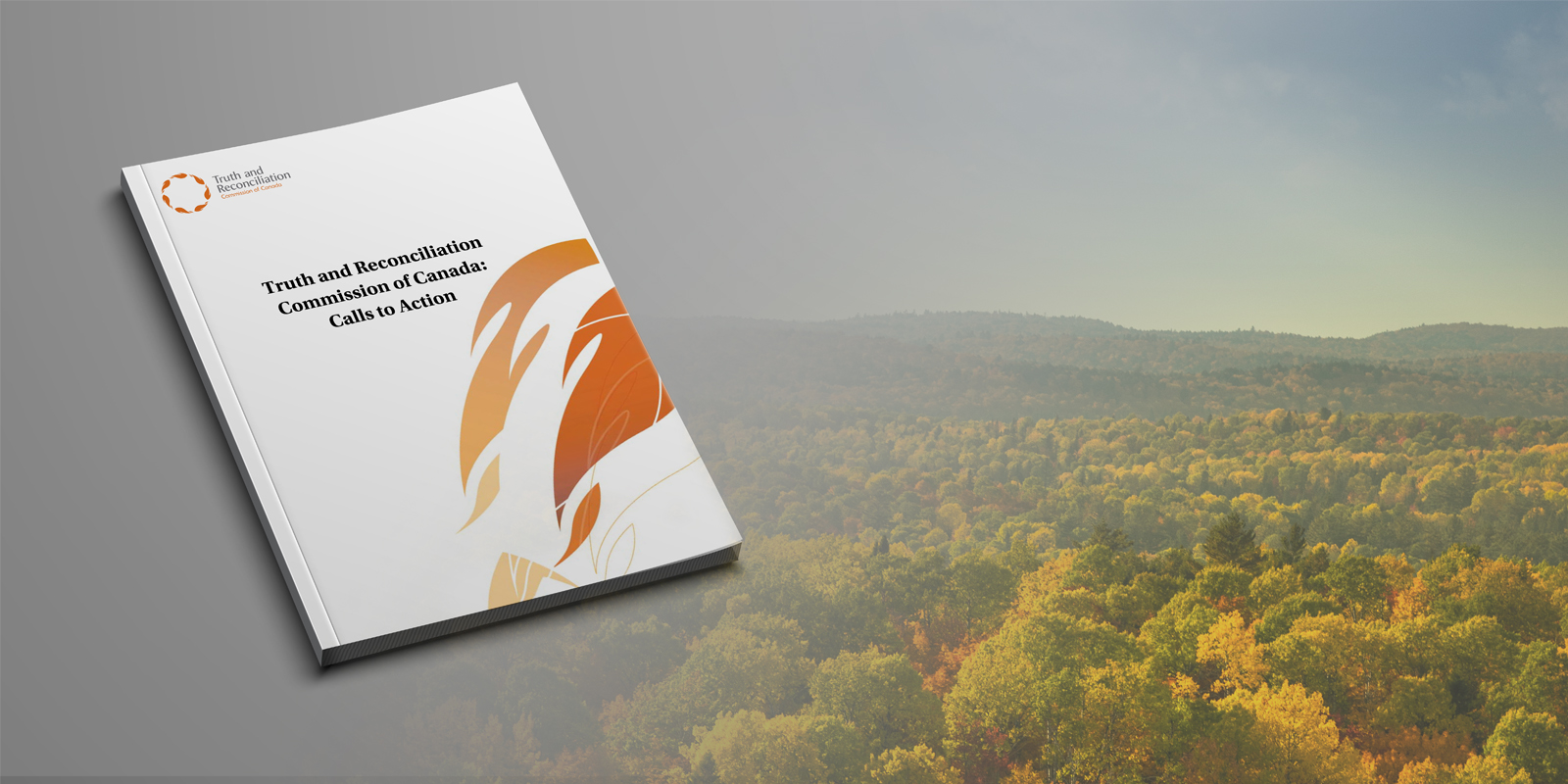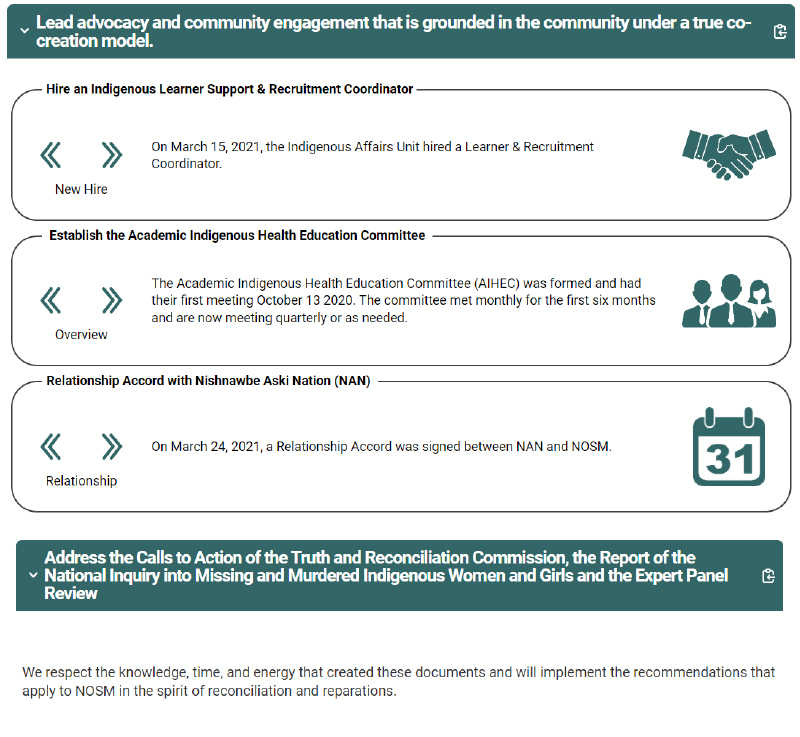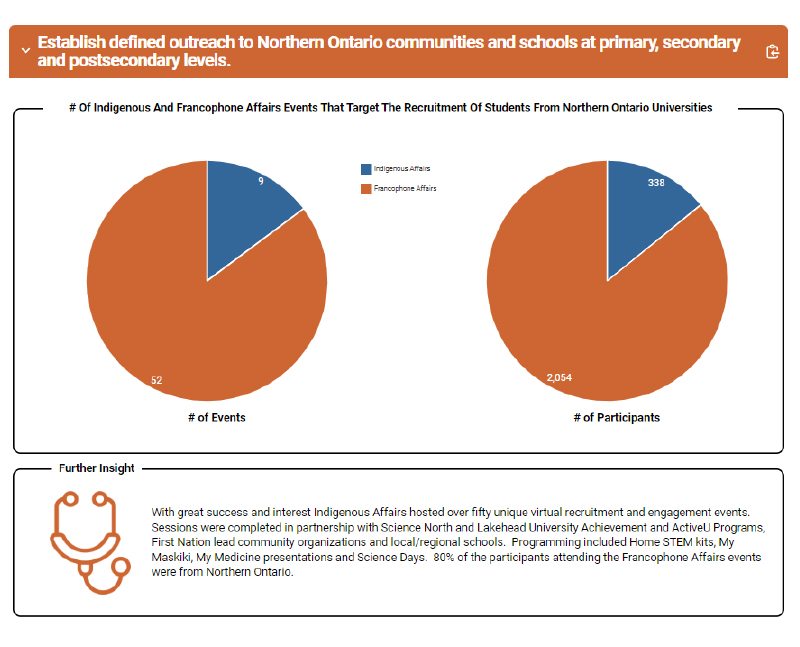NOSM University’s response to the TRC Calls to Action

We remain steadfast in our commitment to address the 94 Calls to Action of the Truth and Reconciliation Commission (TRC) of Canada. We are making strides, and our work towards reconciliation continues.
Many measures have been put in place to increase the number of Indigenous medical students at the University, as well as educate non-Indigenous students about the culture and history of Indigenous peoples on these lands.
To reduce cultural and regional barriers to medical school, NOSM University’s admissions reflect the demographics that the health-care system serves in Northern Ontario. Ten years ago, only two per cent of applicants were Indigenous. The number has now doubled to four per cent Indigenous applicants to NOSM University.
In 2021, 17 per cent of NOSM University’s incoming class of medical students were Indigenous compared to a previous average of seven per cent. This September, another 11 Indigenous students will begin their first-year studies at NOSM University. Since 2009, 65 MDs who self-identify as Indigenous have graduated.
To increase the applicant pool, the University’s Indigenous Affairs Unit has partnered with First Nation communities across Northern Ontario to host health sciences camps for Indigenous youth. There are also other partnerships with communities and organizations underway.
New pathways to medical education are also being implemented at NOSM University to encourage further growth, including a new Indigenous Peoples’ Health and Wellness Collaborative Specialization. Incoming medical students may choose to apply to this optional four-year program that runs concurrently with the MD program and is co-designed by Indigenous faculty, physicians, and Knowledge Keepers.
Education at NOSM University, including the MD program and dietetic internship, requires Indigenous cultural safety training. Teachings provide many opportunities for students to learn about Indigenous history and culture and the tools to become more culturally competent physicians and dietitians.
Each year, NOSM University medical students complete a first-year placement in what is called Integrated Community Experience. This is a mandatory four-week placement in a First Nation community, a Métis organization, or an Indigenous health organization in Northern Ontario.
Prior to living and learning in the First Nations community, students attend compulsory sessions to help facilitate increased understanding of the diversity of Indigenous Peoples in the region. Students experience the realities of life in the rural and remote Indigenous community, and the focus of this placement is cultural immersion, not clinical experience. These preparatory sessions are led by Indigenous faculty and members of the Indigenous Affairs Unit.
Once MD students graduate and transition to residency, they may choose to apply to NOSM University’s Family Medicine Remote First Nations Stream. Community immersion in Eabametoong First Nation allows residents to become embedded in Indigenous culture and traditional practices and experience the rewards and challenges of delivering health care in remote First Nations communities. Other diverse opportunities exist to encounter, immerse in and deliver health care to First Nation peoples within Northern Indigenous communities in the Matawa Tribal Council Area.
In addition to core Family Medicine training, resident doctors learn about traditional healing and medicine therapies from Elders and Knowledge Keepers and undertake academic curriculum designed around Indigenous health competencies.
Medical students are learning about systemic racism in Canadian health care, including an overview of the In Plain Sight report, which describes the calls to action for improved cultural safety in health care and efforts to increase Indigenous leadership in health services, regulation, and education.
NOSM commits to taking responsibility and looking for actionable ways to make a difference with communities across Northern Ontario. The University’s 2021-2025 strategic plan challenges discrimination, engages in anti-racist language, and addresses inequity. To lead the university in this work, Dr. Joseph LeBlanc was appointed NOSM University’s inaugural Associate Dean, Equity and Inclusion in 2020.
Also in 2020, Dr. Darrel Manitowabi was appointed the University’s first NOSM-AMS Hannah Chair in the History of Indigenous Health and Indigenous Traditional Medicine. Dr. Manitowabi works to promote the discussion of the inherent, constitutional, Treaty and international rights of all Indigenous Peoples and communities and the protection of traditional knowledge and medicines from appropriation. His research focus, as the Chair, is in the history of Indigenous Health and he contributes to NOSM University’s role in leading scholarly activity in the history of Indigenous Health.
Thanks to a $1 million donation from the Slaight Family Foundation, a first-of-its-kind entrance scholarship specifically for BIPOC women has been established. These scholarships will provide $25,000 each to 10 women entering NOSM University’s MD program each year, over a period of four years.
An update from Dr. LeBlanc on NOSM University’s Response to the TRC Calls to Action and the United Nations Declaration on the Rights of Indigenous Peoples (UNDRIP) is available at nosm.ca.


